Events
| Name | organizer | Where |
|---|---|---|
| MBCC “Doing Business with Mongolia seminar and Christmas Receptiom” Dec 10. 2025 London UK | MBCCI | London UK Goodman LLC |
NEWS

Mongolia logs 16 new COVID-19 cases, 13 recoveries www.xinhuanet.com
Jan. 21 (Xinhua) -- Mongolia added 16 COVID-19 cases in the past 24 hours after 12,940 tests had been conducted across the country, the National Center for Communicable Diseases (NCCD) said Thursday.
The latest cases were locally transmitted or detected in the country's capital Ulan Bator, Amarjargal Ambaselmaa, head of the NCCD's Surveillance Department, said at a daily press conference.
Mongolia has confirmed a total of 1,584 COVID-19 cases so far, including more than 1,100 locally transmitted ones.
Meanwhile, 13 more patients have recovered from the disease, taking the total to 1,046.
The Asian country, with a population of around 3.3 million, has recorded two COVID-19-related deaths so far. Enditem
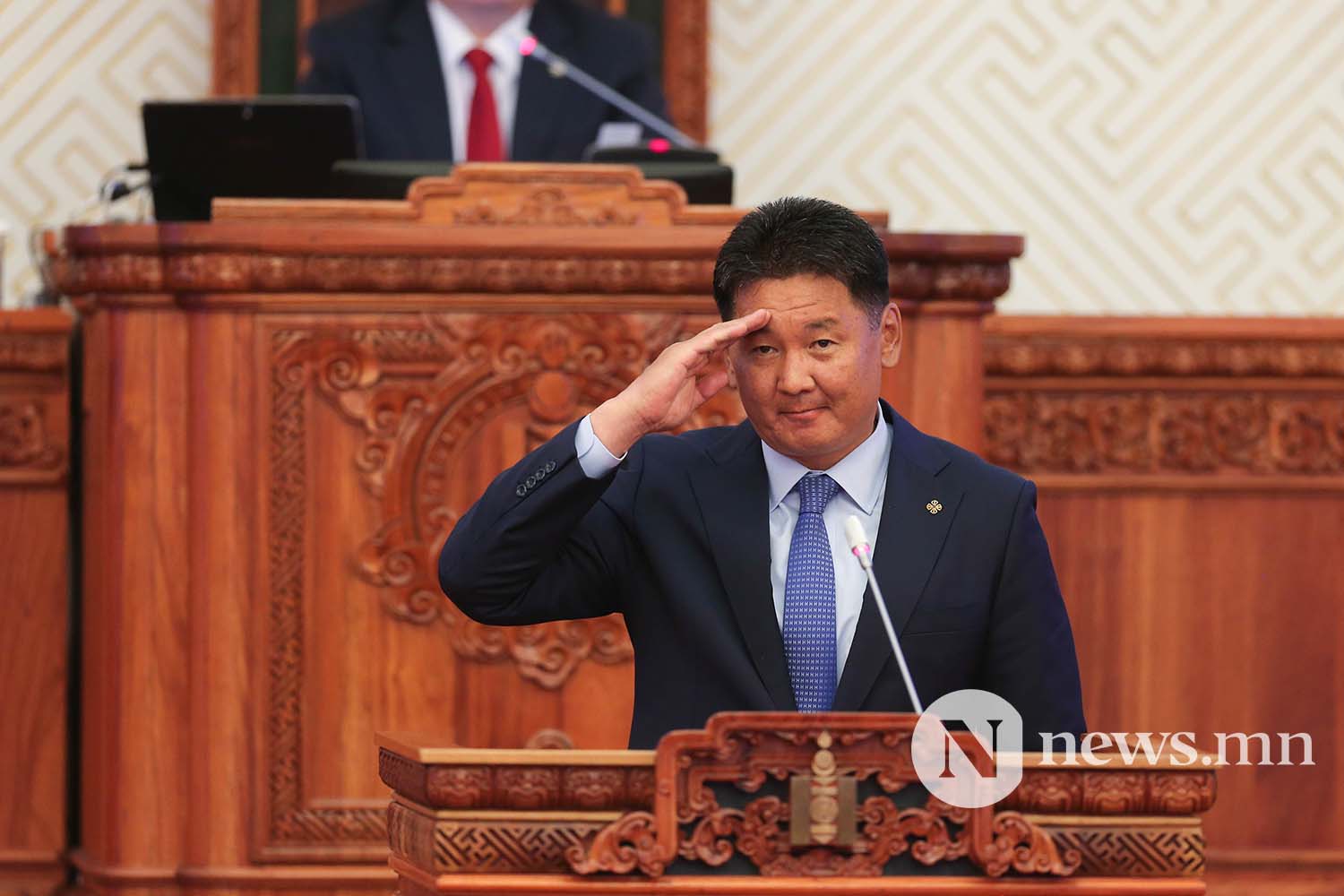
Mongolia Premier Quits, Blames President Over Covid Protests www.bloomberg.com
Mongolia’s prime minister resigned a day after protests against his government’s Covid-19 control measures erupted in capital Ulaanbaatar.
Prime Minister Khurelsukh Ukhnaa submitted his resignation and a proposal to dissolve his government Thursday after hundreds gathered outside the parliament building to demonstrate against the policies.
Parliament, which is controlled by Khurelsukh’s Mongolian People’s Party, voted overwhelmingly Thursday to accept his resignation.
relates to Mongolia Premier Quits, Blames President Over Covid Protests
Khurelsukh UkhnaaPhotographer: Mikhail Klimentyev/AP Photo
In a speech Thursday, the premier accused President Battulga Khaltmaa, from the rival Democratic Party, of orchestrating the protests. Battulga, who’s term expires later this year, expressed shock at Khurelsukh’s remarks in a separate speech.
“I wonder and wonder why the prime minister of Mongolia did such an act that undermined the trust of the Mongolian people, undermined national unity and openly slandered the president of Mongolia,” Battulga said, according to a transcript on the presidential website.
The protests erupted after a video appearing to show a mother being hastily discharged from a local maternity hospital in a bathrobe because she had tested positive for the coronavirus was widely circulated online. Demonstrators flocked to parliament to protest her treatment Wednesday, some wearing only bathrobes and slippers to show solidarity with the woman.
While the protests were not unusually large, they lasted well into the winter night, where temperatures can fall as low as -40 degrees Celsius (-40 Fahrenheit). Protesters said they were upset more broadly with extended lockdowns and restrictions on movement, as well as a ban on cross-border travel.
The vast country of 3.3 million people -- landlocked between Russia and China -- has so far avoided the mass coronavirus outbreaks that have troubled others. Mongolia has reported fewer than 1,600 infections since March, with 526 active cases as of Thursday.
By Terrence Edwards
January 21, 2021, 7:12 PM GMT+8 Updated on January 21, 2021, 8:45 PM GMT+8
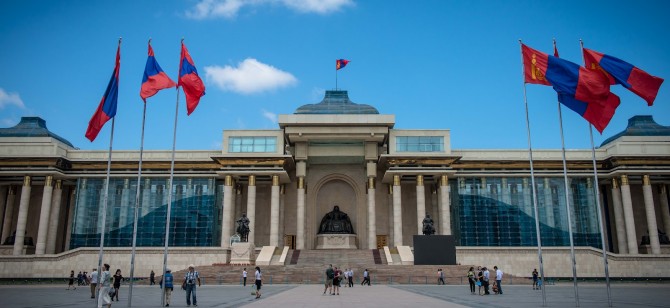
Mongolian prime minister submits resignation after COVID-19 protests www.reuters.com
ULAANBAATAR (Reuters) - Mongolia’s Prime Minister Khurelsukh Ukhnaa submitted his resignation to parliament on Thursday after protests in the capital Ulaanbaatar over the government’s handling of the COVID-19 pandemic, the state news agency Montsame reported.
Khurelsukh said in his resignation statement that he should “assume the responsibility upon himself and accept the demand of the public.” His resignation needs to be approved by parliament.
The protests erupted on Wednesday over what some Mongolians saw as the inhumane treatment of a COVID-19 patient and her newborn baby, Montsame said.
Video footage showed the patient, still wearing her nightgown and slippers, being relocated with her baby to a specialist quarantine facility run by Mongolia’s National Center of Communicable Diseases.
The protests triggered the dismissal of senior health officials. Mongolia’s deputy prime minister and health minister also tendered their resignations.
The incident came amid growing public dissatisfaction with Mongolia’s economic situation and a lack of job opportunities.
Mongolia, which earned praise from the World Health Organization in the early stages of the COVID-19 pandemic for its handling of the health crisis, has recently been battling an outbreak caused by an infected driver entering from Russia.
The country, with a population of around 3 million, has so far reported 1,584 cases, but no deaths.
Reporting by Anand Tumurtogoo and David Stanway; Editing by Gareth Jones
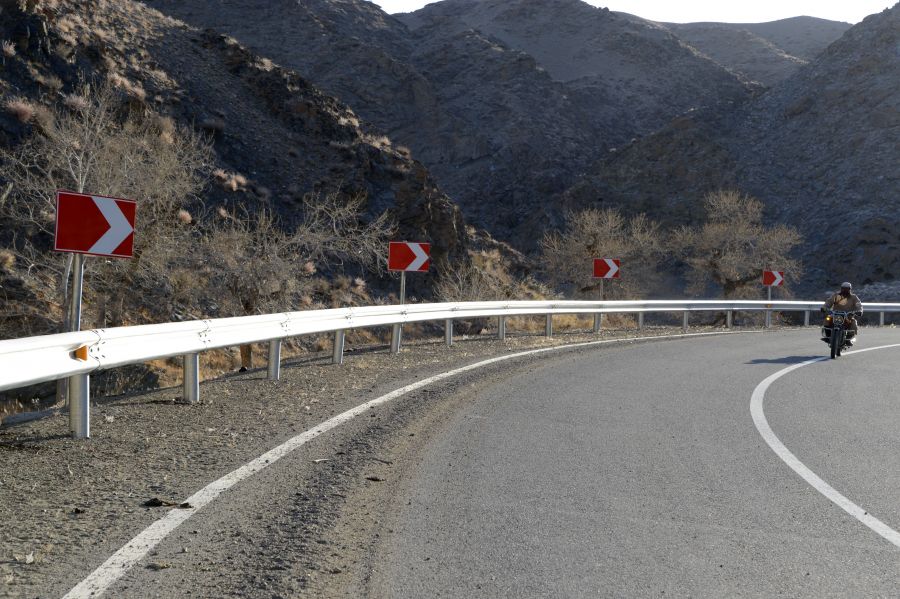
Ulaanbaatar-Darkhan auto road development to continue with EBRD loan www.montsame.mn
Ulaanbaatar /MONTSAME/. At its meeting held on January 20, 2021, the cabinet heard a presentation on an issue regarding the construction of a 204-km four-lane auto road connecting Ulaanbaatar and Darkhan cities. It was reported that the contracted traffic police department will take control on the auto road safety matters throughout the development period.
Continuing the extension and rebuilding of the auto road underway with loan from the Asian Development Bank, two-lane road will be added with financing of the European Bank for Reconstruction and Development, reports the Cabinet Secretariat Press Office. The second phase of the construction of the four-lane Ulaanbaatar-Darkhan road will begin in March 2021.
Moreover, the cabinet agreed to urgently submit the bill to the Parliament on allowing herders and self-employed people to repay social insurance premiums for the period they were not able to make before.
Being effective until December 31, 2020, a previous law covered over 18,000 herders and self-employed citizens, who are approximately 62 percent of all eligible citizens, amid the coronavirus pandemic and lockdown measures.
A large number of herders and self-employed had been expressing their requests to extend the effective date of the law to the parliament, government and the Ministry of Labor and Social protection. The bill reflects to postpone the effective date until January 1, 2022.
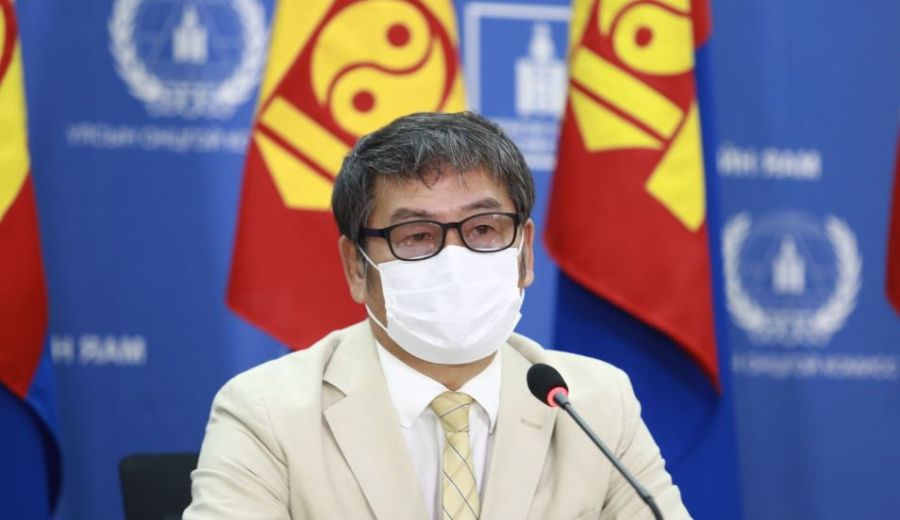
Director of Center for Communicable Diseases dismissed www.montsame.mn
Ulaanbaatar /MONTSAME/. The Ministry of Health today issued a decision to dismiss D.Nyamkhuu, Director of the National Center of Communicable Diseases (NCCD), from his position.
The public has been angered by the faulty relocation process of a mother who tested positive for COVID-19 and her newborn baby from maternity hospital to the NCCD’s quarantine facility.
Due to the situation, head of the Health Department of Ulaanbaatar City L.Tumurbaatar was earlier dismissed from his job and the Prime Minister, Deputy Prime Minister and Health Minister had announced that they would be resigning.
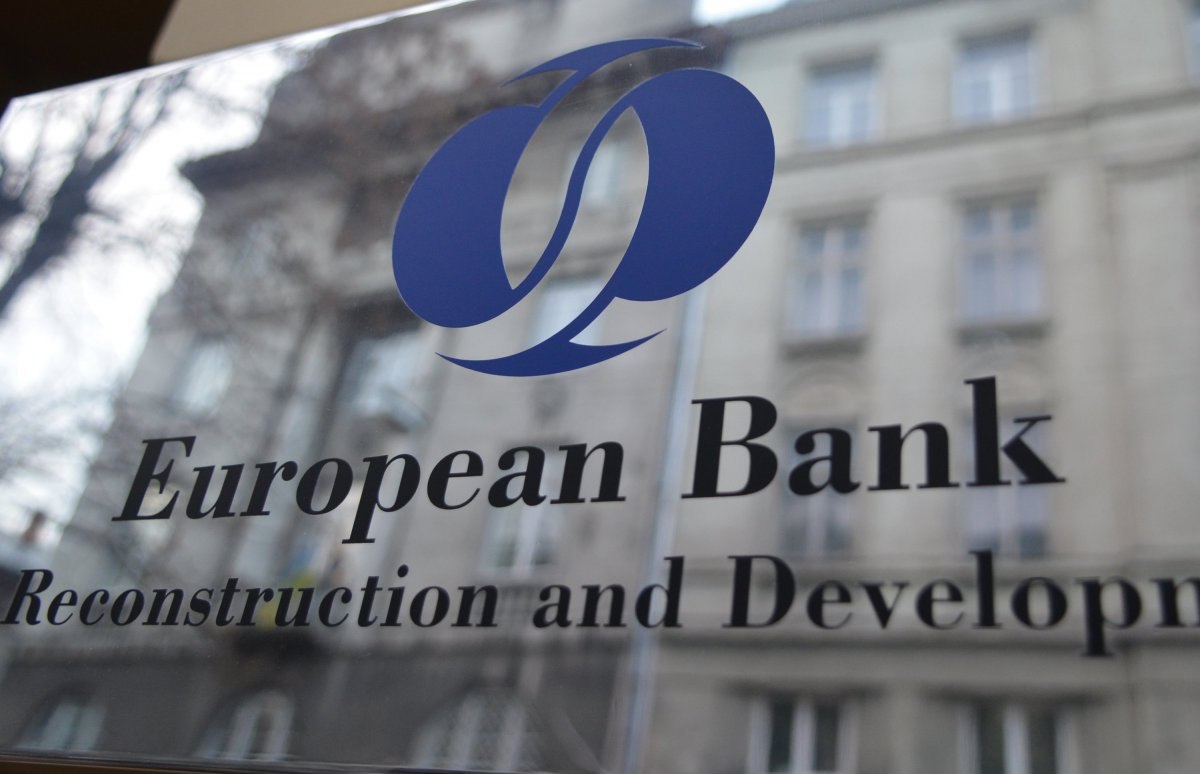
EBRD and Bank of Mongolia agree swap facility www.ebrd.com
The European Bank for Reconstruction and Development (EBRD) and the Bank of Mongolia (BOM) have agreed to set up a long-term dollar-togrog swap facility to increase the availability of Mongolian togrog (MNT) financing to local businesses affected by the coronavirus pandemic.
The swap facility is a result of joint efforts by the EBRD and BOM to improve the competitiveness and resilience of Mongolian companies, with a strong focus on small and medium-sized enterprises (SMEs), which employ over 40 per cent of the country’s population.
The swap will enable the EBRD to secure reliable access to MNT liquidity and provide local currency loans both directly and through domestic financial intermediaries to companies in such sectors as agribusiness, building materials, light manufacturing and services. The funds will be used to support their liquidity, short-term working capital and trade finance needs, while limiting currency exchange related risks.
The EBRD was the first international financial institution to adopt emergency measures to address the economic impact of the coronavirus pandemic in March last year. It focused on supporting existing clients by providing short-term liquidity and working capital to protect viable companies and safeguard progress towards sustainable, fair and open market economies.
In 2020 in Mongolia the EBRD channelled over €150 million into projects ranging from key infrastructure developments to support of local small businesses through financial intermediaries.
The Bank has invested more than €1.8 billion in 113 projects in the country since it started operations there in 2006.
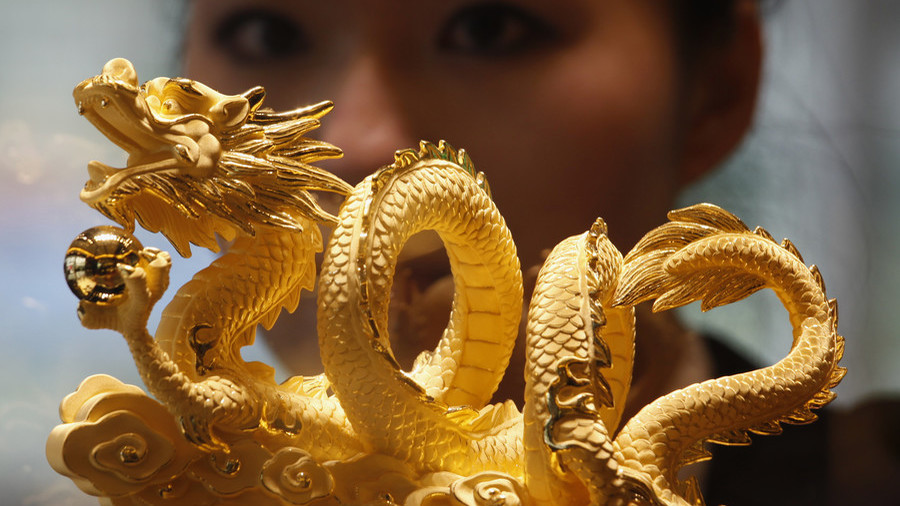
China attracts flood of foreign direct investment amid Covid-19 pandemic www.rt.com
Foreign direct investment (FDI) in China hit a record $144.37 billion in 2020, as the world’s second-largest economy keeps on recovering from the Covid-19 pandemic, according to China’s Ministry of Commerce.
The latest data released by the ministry shows that FDI saw a 4.5-percent year-on-year growth in dollar terms, and a 6.2-percent increase when expressed in yuan.
Foreign inflows into the country’s service industry advanced 13.9 percent year on year, totaling $112 billion and accounting for nearly 80 percent of the entire FDI portfolio. Meanwhile, foreign investment in the advanced-technology industry expanded by 11.4 percent year on year, and high-tech service sector investments rose by 28.5 percent.
The ministry stressed that the latest figures show China has managed to emerge from Covid-19 and meet its target of stabilizing foreign investment in 2020, bucking the downward trend in global foreign investment.
Foreign investments from the top-15 FDI countries and regions grew by 6.4 percent, and took 98 percent of the total FDI to the Chinese mainland. Financial inflows from the Netherlands and the UK advanced 47.6 percent and 30.7 percent respectively. At the same time, investments by the Association of Southeast Asian Nations increased by 0.7 percent.

The economic challenge facing Joe Biden www.bbc.com
The social and economic devastation of the coronavirus pandemic helped win Joe Biden the White House - and his first months in office will be devoted to tackling it.
He has called for $1.9tn in immediate pandemic relief, and promised a second round of stimulus focused on investments in infrastructure, research and development and climate-friendly initiatives to jumpstart the economy.
The country remains sharply divided, but Mr Biden's party has control of the House and this month won a narrow majority in the Senate as well, giving him more room than many expected to push his agenda.
So what will he try to do?
1. Press for more Covid-19 spending
Since winning the election in November, Mr Biden has put promises of additional pandemic relief front and centre of his plans.
Last week, Mr Biden said his $1.9tn (£1.4tn) "American Rescue Plan" would include $1,400 stimulus cheques and $350bn in state and local aid.
His proposal would also expand and extend jobless benefits and put $70bn toward coronavirus testing and vaccine distribution.
"It's not hard to see we're in the middle of a once-in-several-generations economic crisis," Mr Biden said. "The crisis of deep human suffering is in plain sight and there's no time to waste. We have to act and we have to act now."
"This gets money quickly into the pockets of millions of Americans, who will spend it quickly," he added. "That helps the whole economy."
There is little doubt that Republicans will fight the plans. But some Wall Street analysts, such as those at Goldman Sachs, are already pencilling in $750bn more in relief on the expectation that Mr Biden will get something through eventually.
"That, at least, should be easier to do," said Chris Low, chief economist at FHN Financial.
2. Call for raising the minimum wage - and taxes
Mr Biden has called for a $15 minimum wage and said he planned to pay for investments by ensuring corporations and those at the top paid their "fair share".
He has backed raising taxes on the richest households and partially reversing tax cuts granted to companies during the Trump administration, when top rates dropped from 35% to 21%.
"It's the right thing for our economy," he said. "It's the fair thing and it's the decent thing to do."
Even with Democratic majorities, however, it's not clear that idea will become reality anytime soon, since getting such moves through would likely require some Republican support.
Wall Street analysts, at least, are betting that higher taxes are off the table for now.
But Jason Furman, a professor at Harvard Kennedy School and economic adviser under former President Barack Obama, said he thought some rises remain possible.
"President Biden will only be able to get a fraction of what he's called for, because he can't do any more than what the most moderate Democratic senator wants," he said. "I think he'll get some tax increases on high-income households and corporations, but not a huge amount."
3. Seek trillions in climate-friendly infrastructure spending
Mr Biden plans to push pandemic relief first, followed by a second package, which would include the tax hikes as well as massive spending for investments in infrastructure, research and other priorities, with an emphasis on climate-friendly items like charging stations for electric vehicles.
"Imagine confronting the climate crisis with American jobs and ingenuity leading the world," he said. "It's time to stop talking about infrastructure and finally start building infrastructure so we can be more competitive.
Infrastructure investing is an idea with plenty of support from business groups and one that in theory could unite conservatives and liberals.
But getting Congress on board for sizeable public works spending might prove easier said than done.
After all, Donald Trump touted infrastructure plans too - promises that became a running joke in Washington as they repeatedly failed to progress. And many climate-friendly policies remain controversial among companies and Republicans, who have already started criticising Mr Biden's agenda and raising concerns about its cost.
"This opens up more scope but it's still an exceedingly slim majority," Prof Furman said. "You won't be able to do everything."
4. Order change on immigration and the environment
Mr Biden won't need to depend on Congress for everything - and he's likely to focus his executive power on issues like immigration and the environment, two areas where the corporate world often split from the Trump administration.
He has promised to quickly reverse Trump actions, including by rejoining the Paris Climate Accord and ending travel bans from several Muslim-majority countries
He's also got power to influence policy via appointees, new rules governing issues like pollution, and Washington's spending might, which he has pledged to use to supercharge demand for electric vehicles.
5. Do, well, something, on student debt
It's not clear how far Mr Biden will go when it comes to using his White House power.
Democratic leaders like Senators Elizabeth Warren and Chuck Schumer have pushed him to sign executive orders wiping out up to $50,000 in student debts owed to the federal government.
Mr Biden has so far rebuffed calls to unilaterally cancel such debts, sticking with the stance he took during his election campaign, when he backed legislative proposals to forgive up to $10,000 in federal student loans.
"The first couple of years the Biden administration is going to find itself spending a lot of time trying to establish what the correct policy position is because they are not in agreement," said economist Pippa Malmgren, who served in the White House of former President George W Bush. "The left is divided, just not as sharply as the right is."
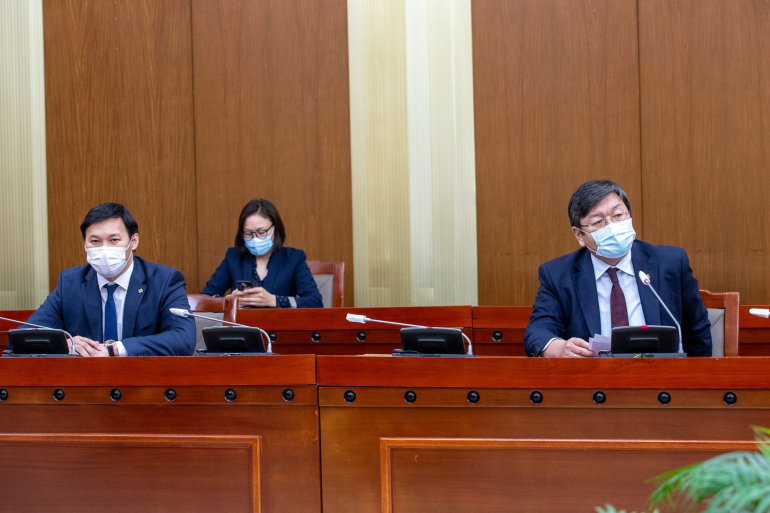
Deputy PM, Health Minister announce to resign following peaceful protest www.montsame.mn
Ulaanbaatar /MONTSAME/. On the evening of January 19, 2021, a live streaming news video showed a woman who gave birth a day before and her newborn baby being transferred from the Urgoo Maternity Hospital to the National Center for Communicable Diseases (NCCD) without any warm outerwear and footwear in cold weather temperature, causing widespread public criticism. She was diagnosed to have COVID-19 earlier that day and was transferred to the NCCD with her baby for quarantine.
On the morning of January 20, 2021, today, officials from the National Center for Communicable Diseases and Urgoo Maternity Hospital issued official apology to the mother, the newborn baby and their family. Currently, the mother and the baby are staying at the quarantine facility of the NCCD under treatment together with the father who was also tested positive for the coronavirus and all are in stable health condition, report the NCCD officials.
However, citizens have assembled in a peaceful protest at the central square in Ulaanbaatar since the morning of January 20, condemning the government for the action and demanding resignation of State Emergency Commission, responsible for the COVID-19 emergency management, and to hold those responsible for the wrongdoing accountable.
As a result, Prime Minister U.Khurelsukh convened an emergency meeting, after which, Deputy Prime Minister Ya.Sodbaatar, who also serves as Chair of the State Emergency Commission, and Minister of Health T.Munkhsaikhan announced that they are submitting their resignation to the Prime Minister. Both ministers were appointed to the position in August 2020 after the new government was formed as a result of the parliamentary elections.
Deputy Prime Minister Ya.Sodbaatar said “Despite the fact that it was not my immediate responsibility, I regret that such neglectful people lacking compassion are working for the Mongolian state. I apologize to the Prime Minister, who appointed me to this position, and the people of Mongolia.”
“I wish to highlight that our team has not made any big strategic mistakes in the past and Mongolia is named as one of five countries who are successfully fighting against the pandemic. I thank for all frontline healthcare workers, professional inspection, police, emergency management organizations, and the government and State Great Khural of Mongolia for the cooperation.”
Afterwards, Health Minister T.Munkhsaikhan said “We have been striving in our battle against COVID-19 and are managing to overcome the transmission outbreaks with minimum losses. All efforts were made to correct the wrong healthcare system persistent for many years and certain achievements have been reached, as you may see. The irresponsible action of some people must not be the reason to deny the efforts committed by around 57,000 employees in the health sector” and notified to convey his resignation to the Prime Minister.
Mongolia’s law on government states that the Prime Minister chooses to resign members of the government after presenting the resignation to State Great Hural and the President. In line with the legislation, the Prime Minister will make the final decision, as reported by the Cabinet Secretariat Press Office.
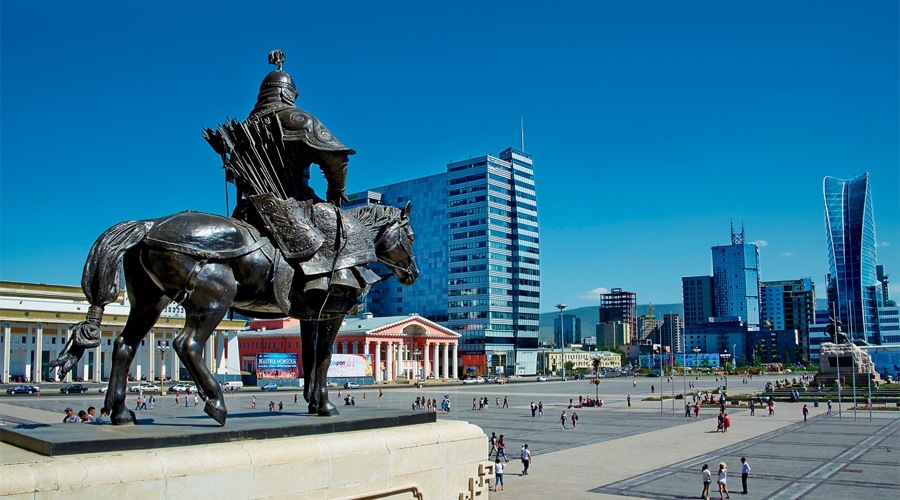
Mongolia sets presidential vote for June 9 www.xinhuanet.com
Jan. 20 (Xinhua) -- Mongolia has set June 9 as the date for its next presidential election, the parliament's press office announced Wednesday in a statement.
The resolution to set June 9, 2021 as the election date was approved by the country's parliament, or the State Great Khural, on Wednesday, the statement said. Enditem
- «
- 1
- 2
- 3
- 4
- 5
- 6
- 7
- 8
- 9
- 10
- 11
- 12
- 13
- 14
- 15
- 16
- 17
- 18
- 19
- 20
- 21
- 22
- 23
- 24
- 25
- 26
- 27
- 28
- 29
- 30
- 31
- 32
- 33
- 34
- 35
- 36
- 37
- 38
- 39
- 40
- 41
- 42
- 43
- 44
- 45
- 46
- 47
- 48
- 49
- 50
- 51
- 52
- 53
- 54
- 55
- 56
- 57
- 58
- 59
- 60
- 61
- 62
- 63
- 64
- 65
- 66
- 67
- 68
- 69
- 70
- 71
- 72
- 73
- 74
- 75
- 76
- 77
- 78
- 79
- 80
- 81
- 82
- 83
- 84
- 85
- 86
- 87
- 88
- 89
- 90
- 91
- 92
- 93
- 94
- 95
- 96
- 97
- 98
- 99
- 100
- 101
- 102
- 103
- 104
- 105
- 106
- 107
- 108
- 109
- 110
- 111
- 112
- 113
- 114
- 115
- 116
- 117
- 118
- 119
- 120
- 121
- 122
- 123
- 124
- 125
- 126
- 127
- 128
- 129
- 130
- 131
- 132
- 133
- 134
- 135
- 136
- 137
- 138
- 139
- 140
- 141
- 142
- 143
- 144
- 145
- 146
- 147
- 148
- 149
- 150
- 151
- 152
- 153
- 154
- 155
- 156
- 157
- 158
- 159
- 160
- 161
- 162
- 163
- 164
- 165
- 166
- 167
- 168
- 169
- 170
- 171
- 172
- 173
- 174
- 175
- 176
- 177
- 178
- 179
- 180
- 181
- 182
- 183
- 184
- 185
- 186
- 187
- 188
- 189
- 190
- 191
- 192
- 193
- 194
- 195
- 196
- 197
- 198
- 199
- 200
- 201
- 202
- 203
- 204
- 205
- 206
- 207
- 208
- 209
- 210
- 211
- 212
- 213
- 214
- 215
- 216
- 217
- 218
- 219
- 220
- 221
- 222
- 223
- 224
- 225
- 226
- 227
- 228
- 229
- 230
- 231
- 232
- 233
- 234
- 235
- 236
- 237
- 238
- 239
- 240
- 241
- 242
- 243
- 244
- 245
- 246
- 247
- 248
- 249
- 250
- 251
- 252
- 253
- 254
- 255
- 256
- 257
- 258
- 259
- 260
- 261
- 262
- 263
- 264
- 265
- 266
- 267
- 268
- 269
- 270
- 271
- 272
- 273
- 274
- 275
- 276
- 277
- 278
- 279
- 280
- 281
- 282
- 283
- 284
- 285
- 286
- 287
- 288
- 289
- 290
- 291
- 292
- 293
- 294
- 295
- 296
- 297
- 298
- 299
- 300
- 301
- 302
- 303
- 304
- 305
- 306
- 307
- 308
- 309
- 310
- 311
- 312
- 313
- 314
- 315
- 316
- 317
- 318
- 319
- 320
- 321
- 322
- 323
- 324
- 325
- 326
- 327
- 328
- 329
- 330
- 331
- 332
- 333
- 334
- 335
- 336
- 337
- 338
- 339
- 340
- 341
- 342
- 343
- 344
- 345
- 346
- 347
- 348
- 349
- 350
- 351
- 352
- 353
- 354
- 355
- 356
- 357
- 358
- 359
- 360
- 361
- 362
- 363
- 364
- 365
- 366
- 367
- 368
- 369
- 370
- 371
- 372
- 373
- 374
- 375
- 376
- 377
- 378
- 379
- 380
- 381
- 382
- 383
- 384
- 385
- 386
- 387
- 388
- 389
- 390
- 391
- 392
- 393
- 394
- 395
- 396
- 397
- 398
- 399
- 400
- 401
- 402
- 403
- 404
- 405
- 406
- 407
- 408
- 409
- 410
- 411
- 412
- 413
- 414
- 415
- 416
- 417
- 418
- 419
- 420
- 421
- 422
- 423
- 424
- 425
- 426
- 427
- 428
- 429
- 430
- 431
- 432
- 433
- 434
- 435
- 436
- 437
- 438
- 439
- 440
- 441
- 442
- 443
- 444
- 445
- 446
- 447
- 448
- 449
- 450
- 451
- 452
- 453
- 454
- 455
- 456
- 457
- 458
- 459
- 460
- 461
- 462
- 463
- 464
- 465
- 466
- 467
- 468
- 469
- 470
- 471
- 472
- 473
- 474
- 475
- 476
- 477
- 478
- 479
- 480
- 481
- 482
- 483
- 484
- 485
- 486
- 487
- 488
- 489
- 490
- 491
- 492
- 493
- 494
- 495
- 496
- 497
- 498
- 499
- 500
- 501
- 502
- 503
- 504
- 505
- 506
- 507
- 508
- 509
- 510
- 511
- 512
- 513
- 514
- 515
- 516
- 517
- 518
- 519
- 520
- 521
- 522
- 523
- 524
- 525
- 526
- 527
- 528
- 529
- 530
- 531
- 532
- 533
- 534
- 535
- 536
- 537
- 538
- 539
- 540
- 541
- 542
- 543
- 544
- 545
- 546
- 547
- 548
- 549
- 550
- 551
- 552
- 553
- 554
- 555
- 556
- 557
- 558
- 559
- 560
- 561
- 562
- 563
- 564
- 565
- 566
- 567
- 568
- 569
- 570
- 571
- 572
- 573
- 574
- 575
- 576
- 577
- 578
- 579
- 580
- 581
- 582
- 583
- 584
- 585
- 586
- 587
- 588
- 589
- 590
- 591
- 592
- 593
- 594
- 595
- 596
- 597
- 598
- 599
- 600
- 601
- 602
- 603
- 604
- 605
- 606
- 607
- 608
- 609
- 610
- 611
- 612
- 613
- 614
- 615
- 616
- 617
- 618
- 619
- 620
- 621
- 622
- 623
- 624
- 625
- 626
- 627
- 628
- 629
- 630
- 631
- 632
- 633
- 634
- 635
- 636
- 637
- 638
- 639
- 640
- 641
- 642
- 643
- 644
- 645
- 646
- 647
- 648
- 649
- 650
- 651
- 652
- 653
- 654
- 655
- 656
- 657
- 658
- 659
- 660
- 661
- 662
- 663
- 664
- 665
- 666
- 667
- 668
- 669
- 670
- 671
- 672
- 673
- 674
- 675
- 676
- 677
- 678
- 679
- 680
- 681
- 682
- 683
- 684
- 685
- 686
- 687
- 688
- 689
- 690
- 691
- 692
- 693
- 694
- 695
- 696
- 697
- 698
- 699
- 700
- 701
- 702
- 703
- 704
- 705
- 706
- 707
- 708
- 709
- 710
- 711
- 712
- 713
- 714
- 715
- 716
- 717
- 718
- 719
- 720
- 721
- 722
- 723
- 724
- 725
- 726
- 727
- 728
- 729
- 730
- 731
- 732
- 733
- 734
- 735
- 736
- 737
- 738
- 739
- 740
- 741
- 742
- 743
- 744
- 745
- 746
- 747
- 748
- 749
- 750
- 751
- 752
- 753
- 754
- 755
- 756
- 757
- 758
- 759
- 760
- 761
- 762
- 763
- 764
- 765
- 766
- 767
- 768
- 769
- 770
- 771
- 772
- 773
- 774
- 775
- 776
- 777
- 778
- 779
- 780
- 781
- 782
- 783
- 784
- 785
- 786
- 787
- 788
- 789
- 790
- 791
- 792
- 793
- 794
- 795
- 796
- 797
- 798
- 799
- 800
- 801
- 802
- 803
- 804
- 805
- 806
- 807
- 808
- 809
- 810
- 811
- 812
- 813
- 814
- 815
- 816
- 817
- 818
- 819
- 820
- 821
- 822
- 823
- 824
- 825
- 826
- 827
- 828
- 829
- 830
- 831
- 832
- 833
- 834
- 835
- 836
- 837
- 838
- 839
- 840
- 841
- 842
- 843
- 844
- 845
- 846
- 847
- 848
- 849
- 850
- 851
- 852
- 853
- 854
- 855
- 856
- 857
- 858
- 859
- 860
- 861
- 862
- 863
- 864
- 865
- 866
- 867
- 868
- 869
- 870
- 871
- 872
- 873
- 874
- 875
- 876
- 877
- 878
- 879
- 880
- 881
- 882
- 883
- 884
- 885
- 886
- 887
- 888
- 889
- 890
- 891
- 892
- 893
- 894
- 895
- 896
- 897
- 898
- 899
- 900
- 901
- 902
- 903
- 904
- 905
- 906
- 907
- 908
- 909
- 910
- 911
- 912
- 913
- 914
- 915
- 916
- 917
- 918
- 919
- 920
- 921
- 922
- 923
- 924
- 925
- 926
- 927
- 928
- 929
- 930
- 931
- 932
- 933
- 934
- 935
- 936
- 937
- 938
- 939
- 940
- 941
- 942
- 943
- 944
- 945
- 946
- 947
- 948
- 949
- 950
- 951
- 952
- 953
- 954
- 955
- 956
- 957
- 958
- 959
- 960
- 961
- 962
- 963
- 964
- 965
- 966
- 967
- 968
- 969
- 970
- 971
- 972
- 973
- 974
- 975
- 976
- 977
- 978
- 979
- 980
- 981
- 982
- 983
- 984
- 985
- 986
- 987
- 988
- 989
- 990
- 991
- 992
- 993
- 994
- 995
- 996
- 997
- 998
- 999
- 1000
- 1001
- 1002
- 1003
- 1004
- 1005
- 1006
- 1007
- 1008
- 1009
- 1010
- 1011
- 1012
- 1013
- 1014
- 1015
- 1016
- 1017
- 1018
- 1019
- 1020
- 1021
- 1022
- 1023
- 1024
- 1025
- 1026
- 1027
- 1028
- 1029
- 1030
- 1031
- 1032
- 1033
- 1034
- 1035
- 1036
- 1037
- 1038
- 1039
- 1040
- 1041
- 1042
- 1043
- 1044
- 1045
- 1046
- 1047
- 1048
- 1049
- 1050
- 1051
- 1052
- 1053
- 1054
- 1055
- 1056
- 1057
- 1058
- 1059
- 1060
- 1061
- 1062
- 1063
- 1064
- 1065
- 1066
- 1067
- 1068
- 1069
- 1070
- 1071
- 1072
- 1073
- 1074
- 1075
- 1076
- 1077
- 1078
- 1079
- 1080
- 1081
- 1082
- 1083
- 1084
- 1085
- 1086
- 1087
- 1088
- 1089
- 1090
- 1091
- 1092
- 1093
- 1094
- 1095
- 1096
- 1097
- 1098
- 1099
- 1100
- 1101
- 1102
- 1103
- 1104
- 1105
- 1106
- 1107
- 1108
- 1109
- 1110
- 1111
- 1112
- 1113
- 1114
- 1115
- 1116
- 1117
- 1118
- 1119
- 1120
- 1121
- 1122
- 1123
- 1124
- 1125
- 1126
- 1127
- 1128
- 1129
- 1130
- 1131
- 1132
- 1133
- 1134
- 1135
- 1136
- 1137
- 1138
- 1139
- 1140
- 1141
- 1142
- 1143
- 1144
- 1145
- 1146
- 1147
- 1148
- 1149
- 1150
- 1151
- 1152
- 1153
- 1154
- 1155
- 1156
- 1157
- 1158
- 1159
- 1160
- 1161
- 1162
- 1163
- 1164
- 1165
- 1166
- 1167
- 1168
- 1169
- 1170
- 1171
- 1172
- 1173
- 1174
- 1175
- 1176
- 1177
- 1178
- 1179
- 1180
- 1181
- 1182
- 1183
- 1184
- 1185
- 1186
- 1187
- 1188
- 1189
- 1190
- 1191
- 1192
- 1193
- 1194
- 1195
- 1196
- 1197
- 1198
- 1199
- 1200
- 1201
- 1202
- 1203
- 1204
- 1205
- 1206
- 1207
- 1208
- 1209
- 1210
- 1211
- 1212
- 1213
- 1214
- 1215
- 1216
- 1217
- 1218
- 1219
- 1220
- 1221
- 1222
- 1223
- 1224
- 1225
- 1226
- 1227
- 1228
- 1229
- 1230
- 1231
- 1232
- 1233
- 1234
- 1235
- 1236
- 1237
- 1238
- 1239
- 1240
- 1241
- 1242
- 1243
- 1244
- 1245
- 1246
- 1247
- 1248
- 1249
- 1250
- 1251
- 1252
- 1253
- 1254
- 1255
- 1256
- 1257
- 1258
- 1259
- 1260
- 1261
- 1262
- 1263
- 1264
- 1265
- 1266
- 1267
- 1268
- 1269
- 1270
- 1271
- 1272
- 1273
- 1274
- 1275
- 1276
- 1277
- 1278
- 1279
- 1280
- 1281
- 1282
- 1283
- 1284
- 1285
- 1286
- 1287
- 1288
- 1289
- 1290
- 1291
- 1292
- 1293
- 1294
- 1295
- 1296
- 1297
- 1298
- 1299
- 1300
- 1301
- 1302
- 1303
- 1304
- 1305
- 1306
- 1307
- 1308
- 1309
- 1310
- 1311
- 1312
- 1313
- 1314
- 1315
- 1316
- 1317
- 1318
- 1319
- 1320
- 1321
- 1322
- 1323
- 1324
- 1325
- 1326
- 1327
- 1328
- 1329
- 1330
- 1331
- 1332
- 1333
- 1334
- 1335
- 1336
- 1337
- 1338
- 1339
- 1340
- 1341
- 1342
- 1343
- 1344
- 1345
- 1346
- 1347
- 1348
- 1349
- 1350
- 1351
- 1352
- 1353
- 1354
- 1355
- 1356
- 1357
- 1358
- 1359
- 1360
- 1361
- 1362
- 1363
- 1364
- 1365
- 1366
- 1367
- 1368
- 1369
- 1370
- 1371
- 1372
- 1373
- 1374
- 1375
- 1376
- 1377
- 1378
- 1379
- 1380
- 1381
- 1382
- 1383
- 1384
- 1385
- 1386
- 1387
- 1388
- 1389
- 1390
- 1391
- 1392
- 1393
- 1394
- 1395
- 1396
- 1397
- 1398
- 1399
- 1400
- 1401
- 1402
- 1403
- 1404
- 1405
- 1406
- 1407
- 1408
- 1409
- 1410
- 1411
- 1412
- 1413
- 1414
- 1415
- 1416
- 1417
- 1418
- 1419
- 1420
- 1421
- 1422
- 1423
- 1424
- 1425
- 1426
- 1427
- 1428
- 1429
- 1430
- 1431
- 1432
- 1433
- 1434
- 1435
- 1436
- 1437
- 1438
- 1439
- 1440
- 1441
- 1442
- 1443
- 1444
- 1445
- 1446
- 1447
- 1448
- 1449
- 1450
- 1451
- 1452
- 1453
- 1454
- 1455
- 1456
- 1457
- 1458
- 1459
- 1460
- 1461
- 1462
- 1463
- 1464
- 1465
- 1466
- 1467
- 1468
- 1469
- 1470
- 1471
- 1472
- 1473
- 1474
- 1475
- 1476
- 1477
- 1478
- 1479
- 1480
- 1481
- 1482
- 1483
- 1484
- 1485
- 1486
- 1487
- 1488
- 1489
- 1490
- 1491
- 1492
- 1493
- 1494
- 1495
- 1496
- 1497
- 1498
- 1499
- 1500
- 1501
- 1502
- 1503
- 1504
- 1505
- 1506
- 1507
- 1508
- 1509
- 1510
- 1511
- 1512
- 1513
- 1514
- 1515
- 1516
- 1517
- 1518
- 1519
- 1520
- 1521
- 1522
- 1523
- 1524
- 1525
- 1526
- 1527
- 1528
- 1529
- 1530
- 1531
- 1532
- 1533
- 1534
- 1535
- 1536
- 1537
- 1538
- 1539
- 1540
- 1541
- 1542
- 1543
- 1544
- 1545
- 1546
- 1547
- 1548
- 1549
- 1550
- 1551
- 1552
- 1553
- 1554
- 1555
- 1556
- 1557
- 1558
- 1559
- 1560
- 1561
- 1562
- 1563
- 1564
- 1565
- 1566
- 1567
- 1568
- 1569
- 1570
- 1571
- 1572
- 1573
- 1574
- 1575
- 1576
- 1577
- 1578
- 1579
- 1580
- 1581
- 1582
- 1583
- 1584
- 1585
- 1586
- 1587
- 1588
- 1589
- 1590
- 1591
- 1592
- 1593
- 1594
- 1595
- 1596
- 1597
- 1598
- 1599
- 1600
- 1601
- 1602
- 1603
- 1604
- 1605
- 1606
- 1607
- 1608
- 1609
- 1610
- 1611
- 1612
- 1613
- 1614
- 1615
- 1616
- 1617
- 1618
- 1619
- 1620
- 1621
- 1622
- 1623
- 1624
- 1625
- 1626
- 1627
- 1628
- 1629
- 1630
- 1631
- 1632
- 1633
- 1634
- 1635
- 1636
- 1637
- 1638
- 1639
- 1640
- 1641
- 1642
- 1643
- 1644
- 1645
- 1646
- 1647
- 1648
- 1649
- 1650
- 1651
- 1652
- 1653
- 1654
- 1655
- 1656
- 1657
- 1658
- 1659
- 1660
- 1661
- 1662
- 1663
- 1664
- 1665
- 1666
- 1667
- 1668
- 1669
- 1670
- 1671
- 1672
- 1673
- 1674
- 1675
- 1676
- 1677
- 1678
- 1679
- 1680
- 1681
- 1682
- 1683
- 1684
- 1685
- 1686
- 1687
- 1688
- 1689
- 1690
- 1691
- 1692
- 1693
- 1694
- 1695
- 1696
- 1697
- 1698
- 1699
- 1700
- 1701
- 1702
- 1703
- 1704
- 1705
- 1706
- 1707
- 1708
- 1709
- 1710
- 1711
- 1712
- 1713
- 1714
- »






